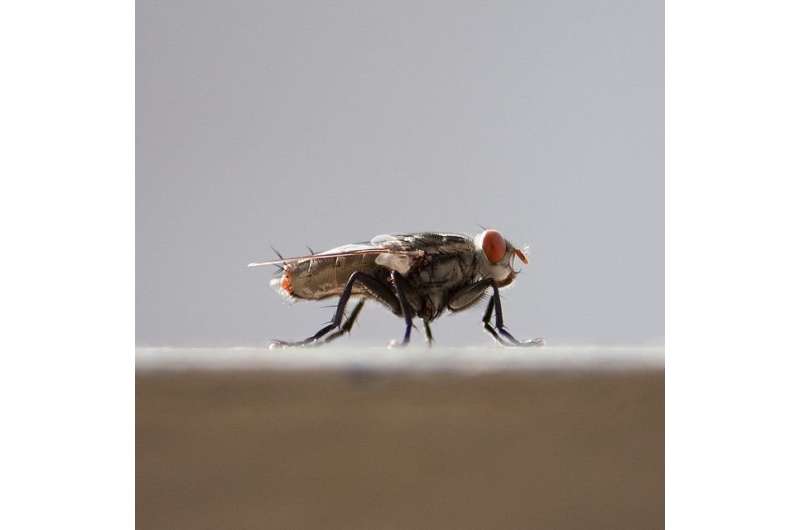Double stranded RNA treatment can reduce fertility of adult house fly pests

Double stranded RNA (dsRNA) can effectively reduce house fly fertility, and shows promise as a pest control method, according to a study published January 17, 2018 in the open-access journal PLOS ONE by Neil Sanscrainte from the USDA/ARS Center for Medical, Agricultural, and Veterinary Entomology, US, and colleagues.
House flies, Musca domestica, are worldwide pests which carry many pathogens, but they rapidly evolve resistance to insecticides. RNA interference using dsRNA has been suggested as an alternative control method. The authors of the present study designed dsRNA to target three fly RNA transcripts, the cytoskeletal protein actin-5C and two ribosomal proteins. They injected the dsRNA into adult female house flies and investigated its effect on gene expression and reproduction.
The researchers found that flies injected with the ribosomal protein dsRNAs were less fertile, showing a reduction in egg development and producing significantly fewer eggs. Since flies treated with dsRNA designed for a mosquito species were not less fertile, it appears that the dsRNA treatment is species-specific. Flies treated with M. domestica dsRNAs showed reduced levels of expression of the targeted transcripts, suggesting that the dsRNA was successfully targeting RNA transcripts before protein was produced.
Injection methods are not practical in the field, so future research could investigate alternative delivery methods. Nonetheless, this study demonstrates the efficacy and specificity of dsRNA as a control method in reducing the fertility of adult house flies.
"This study is the first to demonstrate that gene silencing using double stranded RNA (dsRNA) can be effective as a biopesticide for the adult housefly if improved delivery methods are subsequently developed," says Sanscrainte. "Microinjection of dsRNA targeting two Musca domestica ribosomal genes resulted in significant reductions in egg development and oviposition when compared to control dsRNA injected flies."
More information: Sanscrainte ND, Arimoto H, Waits CM, Li LY, Johnson D, Geden C, et al. (2018) Reduction in Musca domestica fecundity by dsRNA-mediated gene knockdown. PLoS ONE 13(1): e0187353. doi.org/10.1371/journal.pone.0187353
Journal information: PLoS ONE
Provided by Public Library of Science



















